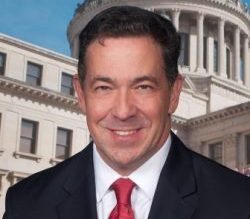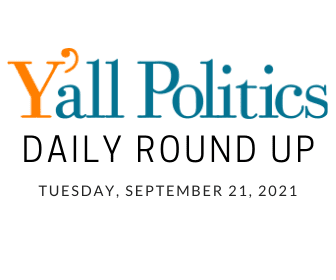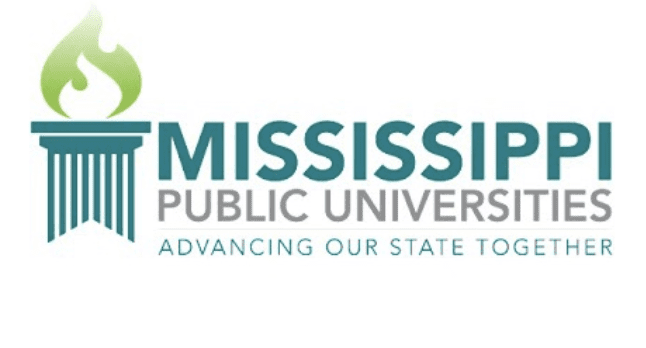
Submitted by State Senator Chris McDaniel
“Our goal should be to reform the Medicaid system, not just throw more money at it, which seems to be the current policy.”
One of the most meaningful issues of the upcoming legislative session will be the possible expansion of Medicaid.
I agree with Governor Tate Reeves and will not support an expansion of the federal-state program. Instead, I believe the Legislature must reform Medicaid, and we should do it by not growing the size of government.
Nevertheless, Lt. Governor Delbert Hosemann refuses to rule out an expansion of Medicaid. Based on his public statements, he supports more significant government involvement in healthcare matters, departing from traditional GOP beliefs. In particular, most Republican voters disagree with Hosemann’s support for Obamacare’s Medicaid expansion.
So a debate is brewing.
Medicaid, which began in 1965 as part of Lyndon Johnson’s Great Society, is a joint federal-state venture to provide healthcare coverage for the state’s most vulnerable residents.
But that’s not what Obamacare’s Medicaid expansion does; it seeks instead to provide coverage to able-bodied and childless adults.
Under Obamacare, bureaucrats in Washington have offered Mississippi millions of dollars and promise to cover 90 percent of the costs to entice expansion. Hosemann and some Mississippi legislators, especially Democrats, want that “free” money yet appear indifferent to the long-term consequences — increased costs on taxpayers, a diversion of funding away from vulnerable patients, the crowding out of resources for critical public services, and an inevitable federal default of owed Medicaid funds.
Thirty-nine states have taken the deal, yet only three states in the South have done so: Virginia, Louisiana, and Arkansas. Nearly every state that has expanded Medicaid has seen costs increase far more than official estimates predicted. Research from the Foundation for Government Accountability (FGA) shows Medicaid expansion costs the average state 157 percent more than they initially estimated. In Louisiana, Medicaid expansion costs $1.3 billion over projections.
Medicaid expansion has been considerably more expensive than predicted because many new enrollees are able-bodied adults who already have health insurance. Remarkably, 57 percent of recent new enrollees in Medicaid already owned private insurance over the past several years. If Mississippi expands Medicaid, nearly half of new enrollees will drop their employer-based or individual coverage to get on Medicaid.
What sense does it make to trap able-bodied adults into a lifetime of Medicaid dependency? Medicaid is supposed to be a temporary safety net, not a lifestyle choice. The goal of policymakers should be to transition individuals out of dependency and back into the private marketplace. Otherwise, Medicaid expenses will continue to explode, and the state’s budget will continue to suffer.
Every Medicaid dollar that Mississippi spends on non-disabled adults is one fewer dollar it can spend on individuals with disabilities, pregnant mothers, and children in poverty. According to the FGA, expansion states have forced nearly 250,000 sick patients to languish on waiting lists because they lack the funding for their care.
Medicaid expansion’s escalating costs will also “crowd out” funding for critical public services, not to mention the massive portion of new Medicaid spending wasted on fraud and abuse. Not to belabor the point, but California spent $4 billion on Medicaid for people who did not qualify to receive it. And it wasn’t alone. Audits by the federal Office of Inspector General found as much as one out of every five dollars Medicaid spends is improperly spent on individuals who do not qualify for the program. And shockingly, researchers at Harvard, Dartmouth, and MIT estimate that it produces just 20 to 40 cents of benefit for each dollar spent.
With that in mind, consider the substantial expense of the current system: In 2000, total spending on Medicaid totaled $206 billion – $117 billion for the federal portion and $89.2 billion spent by the states. In 2017, it was $600 billion – $370 billion by Washington and $229.9 billion by the states. By 2027, Medicaid spending is projected to be $1 trillion in total expenditures – $625 billion by the federal government and $383 billion by the individual states.
Part of this increase is the number of people signed up for the program, growing from 34.5 million in 2000 to 73.4 million in 2017. The 2027 projection is a shocking 82 million Americans on Medicaid.
Such a growth rate is unsustainable in the long term.
Making matters worse, the risks of expansion far outweigh the benefits.
The Government Accountability Office (GAO) recently published its latest report on the nation’s long-term fiscal outlook. Once again, it warned that the nation’s fiscal path is unsustainable. In agreement, the non-partisan Congressional Budget Office (CBO) issued the following dire predictions: “By the end of 2021, federal debt held by the public is projected to equal 102 percent of GDP. Debt would reach 107 percent of GDP (surpassing its historical high) in 2031 and would almost double to 202 percent of GDP by 2051. Debt that is high and rising as a percentage of GDP boosts federal and private borrowing costs, slows the growth of economic output, and increases interest payments abroad. A growing debt burden could increase the risk of a fiscal crisis and higher inflation as well as undermine confidence in the U.S. dollar, making it more costly to finance public and private activity in international markets.”
So does anyone seriously believe the federal government will fund 90 percent of expansion costs indefinitely?
Anyone with a calculator knows the unavoidable conclusion.
The federal government will not be able to pay its share. It will default. It will break its promise, and thousands of Mississippians will suffer as benefits are suddenly eliminated, monies for other public services such as infrastructure or education are slashed, and taxes are drastically increased to cover the massive budget shortfall.
Our goal should be to reform the Medicaid system, not just throw more money at it, which seems to be the current policy.
Expansion is not the answer.
###
Submitted by State Senator Chris McDaniel.









